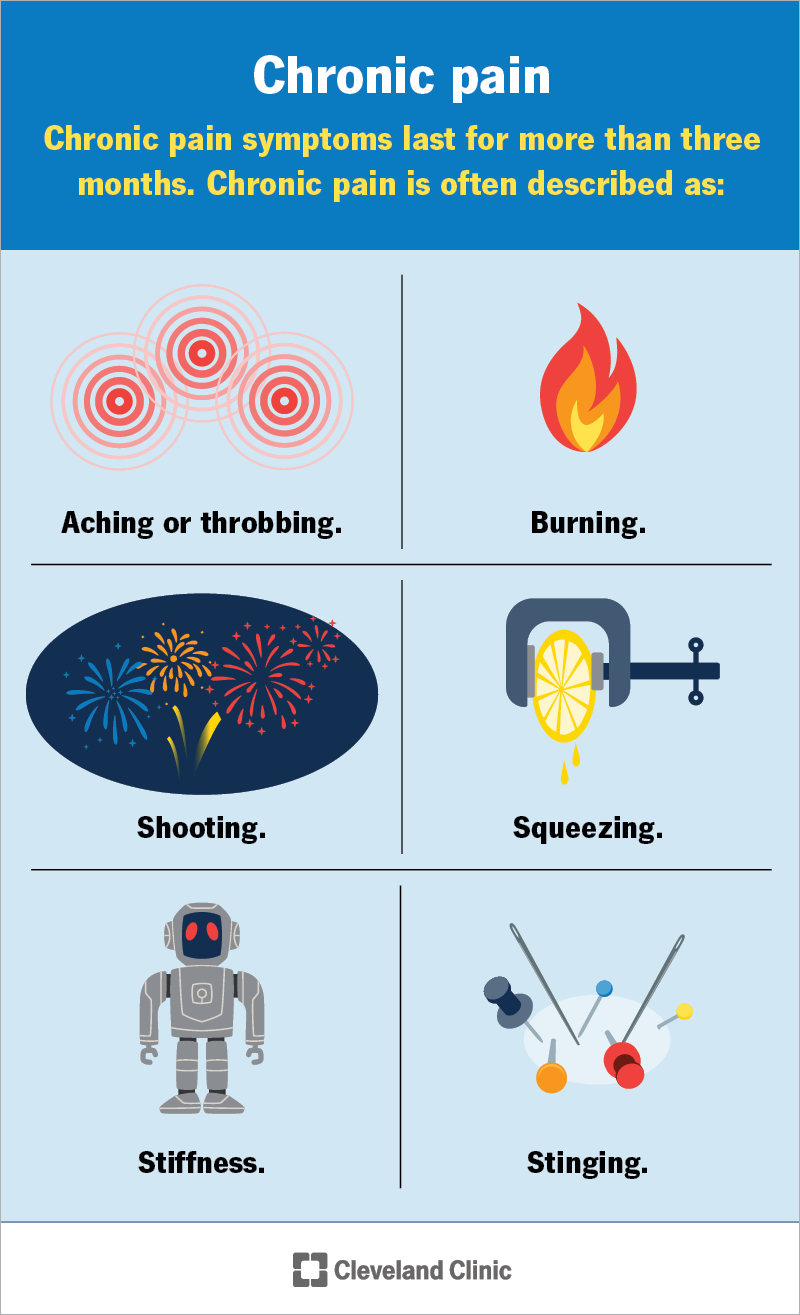Back
Chronic Pain
By Shannon Strauch, PTA, STMT-1 on 9/12/2024

What is Chronic Pain?
Chronic pain is pain that persists for three months or longer, often continuing beyond the time it would normally take for an injury to heal. Unlike acute pain, which is a direct response to tissue damage, chronic pain may not always have a clear cause. It can manifest in various ways, including continuous, sharp, burning, or throbbing sensations. Common conditions associated with chronic pain include arthritis, fibromyalgia, back pain, and migraines.
Living with chronic pain affects every aspect of life, from physical mobility to emotional well-being. People with chronic pain often experience fatigue, difficulty concentrating, sleep disturbances, and depression. Because of its complexity, managing chronic pain can be challenging, often requiring a multifaceted approach.
What is Chronic Pelvic Pain?
Chronic pelvic pain (CPP) is a type of chronic pain specifically located in the pelvic region, affecting both men and women. For women, CPP might stem from conditions like endometriosis, interstitial cystitis, or pelvic floor dysfunction. In men, chronic pelvic pain can be linked to conditions such as chronic prostatitis, irritable bowel syndrome (IBS), or pelvic floor muscle tension.
Symptoms of CPP may include deep aching, sharp pains, burning sensations, and discomfort during activities like sitting, walking, or sexual intercourse. Because the causes of CPP are diverse and sometimes overlapping, diagnosis can be difficult, often requiring multiple assessments and tests.
How Fascial Counterstrain Helps with Chronic Pain
Fascial counterstrain is a specialized manual therapy that targets the fascia, a connective tissue that surrounds muscles, organs, and nerves. When fascia becomes tight or restricted, it can contribute to chronic pain by compressing nerves, blood vessels, or other tissues. Fascial counterstrain works by gently manipulating and slacking these areas to relieve tension, improve circulation, and restore normal function.
For individuals with chronic pain, including chronic pelvic pain, fascial counterstrain can be incredibly effective. By addressing the underlying restrictions in the fascia, it helps reduce pain, improve mobility, and relieve pressure on affected areas. This technique is particularly beneficial for those who have not found relief through other forms of treatment, as it targets deeper layers of dysfunction.
How Pelvic Floor Therapy Helps with Chronic Pain
Pelvic floor therapy is a treatment that focuses on strengthening and relaxing the muscles in the pelvic region. These muscles are crucial for bladder and bowel function, sexual health, and supporting internal organs. When pelvic floor muscles are too tight, weak, or poorly coordinated, they can cause or exacerbate chronic pelvic pain.
Pelvic floor therapy uses a combination of exercises, manual therapy, biofeedback, and other techniques to improve the function of these muscles. In cases of chronic pelvic pain, the therapy often targets areas of muscle tension and imbalance. By relaxing tight muscles, improving muscle coordination, and strengthening weak areas, pelvic floor therapy can help alleviate pain and improve overall pelvic function.
How These Therapies Work Together
When fascial counterstrain and pelvic floor therapy are used together, they can offer significant relief for individuals suffering from chronic pain, including chronic pelvic pain. Fascial counterstrain addresses the underlying restrictions in the fascia, while pelvic floor therapy focuses on improving muscle function and reducing pain related to muscle tension or dysfunction.
For example, in cases where chronic pelvic pain is caused by tightness in both the fascia and the pelvic floor muscles, combining these two therapies can lead to more comprehensive pain relief. While fascial counterstrain reduces tension in the connective tissue, pelvic floor therapy strengthens and relaxes the muscles, offering a more holistic approach to pain management.
Conclusion
Chronic pain, especially chronic pelvic pain, can be a debilitating condition that affects all aspects of life. However, treatments like fascial counterstrain and pelvic floor therapy offer hope. By addressing both the connective tissue and the muscles, these therapies provide a dual approach that can help reduce pain, improve mobility, and restore quality of life. If you're struggling with chronic pain, it may be time to consider these therapies and consult with a healthcare provider who specializes in them. With the right approach, managing chronic pain is possible. Looking to optimize your well being with pelvic floor physical therapy? Reach out to us at Pelvic Health Center in Madison, NJ to set up an evaluation and treatment! Feel free to call us at 908-443-9880 or email us at receptionmadison@pelvichealthnj.com.
The Jones Institute- Counterstrain
Counterstrain Provider Directory
Read More:
How Chronic Pelvic Congestion in Men Contributes to Prostatitis By Shannon Strauch, PTA, STMT-1 on 12/11/2024 How lymphatic issues can cause symptoms of prostatitis Prostatitis and Tight Pelvic Floor Muscles: A Comprehensive Guide By Shannon Strauch, PTA, STMT-1 on 12/10/2024 How a tight pelvic floor can be the reason for prostatitis symptoms
Are you ready to live pain free?
Request An Appointment